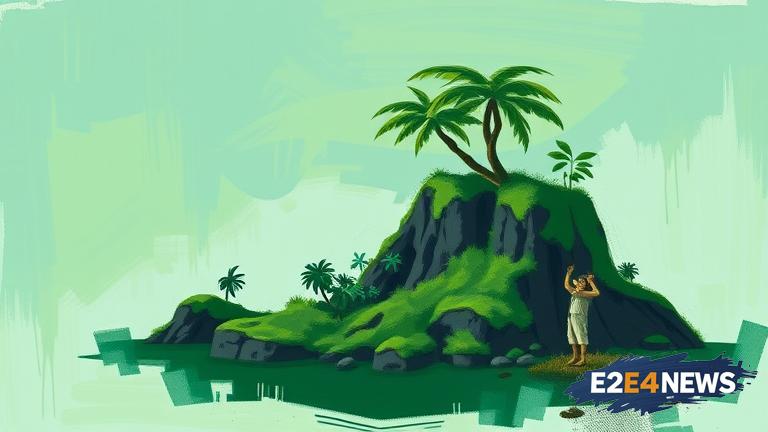Guyana, a country located in South America, has been experiencing significant economic growth in recent years, driven largely by its emerging oil and gas industry. However, the country’s wealth extends far beyond its economic growth, with its natural resources holding significant value for the country’s development. The country’s vast rainforests, diverse wildlife, and extensive water resources make it a unique and valuable destination for eco-tourism and sustainable development. The Guyanese government has recognized the importance of its natural resources and has implemented policies to protect and conserve them. The country’s natural resources include its forests, which cover over 80% of its land area, and its water resources, which include numerous rivers, streams, and waterfalls. The forests are home to a diverse range of flora and fauna, including many endangered species, and provide important ecosystem services such as carbon sequestration and soil conservation. The country’s water resources are also significant, with many rivers and streams providing habitat for aquatic life and supporting agriculture and industry. In addition to its natural resources, Guyana is also home to a rich cultural heritage, with many indigenous communities and a unique blend of African, European, and Asian influences. The country’s capital, Georgetown, is a bustling city with a rich history and a blend of colonial and modern architecture. The city is home to many important landmarks, including the St. George’s Cathedral, the Guyana National Museum, and the Georgetown Botanical Gardens. Despite its many strengths, Guyana still faces significant challenges, including poverty, inequality, and environmental degradation. The country’s economy is heavily dependent on its natural resources, and the government has faced criticism for its handling of the oil and gas industry. However, the government has also made significant efforts to promote sustainable development and protect the country’s natural resources. In recent years, the government has implemented policies to promote eco-tourism, conserve forests, and protect wildlife. The country has also made significant progress in reducing poverty and improving living standards, with many Guyanese citizens enjoying improved access to education, healthcare, and other basic services. Overall, Guyana’s wealth includes the value of its natural resources, which provide important ecosystem services, support sustainable development, and promote eco-tourism. The country’s unique cultural heritage and rich history also make it a valuable destination for tourists and investors. As the country continues to develop and grow, it is essential that the government prioritizes the protection and conservation of its natural resources, while also promoting sustainable development and reducing poverty and inequality. By doing so, Guyana can unlock the full value of its natural resources and promote a brighter future for its citizens. The country’s natural resources are a valuable asset, and it is essential that they are managed sustainably to ensure their long-term conservation. The government has a critical role to play in promoting sustainable development and protecting the country’s natural resources. By working together with local communities, international organizations, and the private sector, the government can ensure that Guyana’s natural resources are managed in a way that benefits both the environment and the economy. This will require a coordinated effort to promote sustainable land use, reduce deforestation, and protect wildlife habitats. It will also require significant investment in education, healthcare, and other basic services to support the well-being of local communities. By prioritizing the protection and conservation of its natural resources, Guyana can promote a brighter future for its citizens and ensure the long-term sustainability of its economy. The country’s natural resources are a valuable asset, and it is essential that they are managed sustainably to ensure their long-term conservation. The government has made significant progress in promoting sustainable development and protecting the country’s natural resources, but more needs to be done to address the significant challenges facing the country. The country’s economy is heavily dependent on its natural resources, and the government must prioritize the protection and conservation of these resources to ensure their long-term sustainability. This will require a coordinated effort to promote sustainable land use, reduce deforestation, and protect wildlife habitats. It will also require significant investment in education, healthcare, and other basic services to support the well-being of local communities. By working together with local communities, international organizations, and the private sector, the government can ensure that Guyana’s natural resources are managed in a way that benefits both the environment and the economy.
